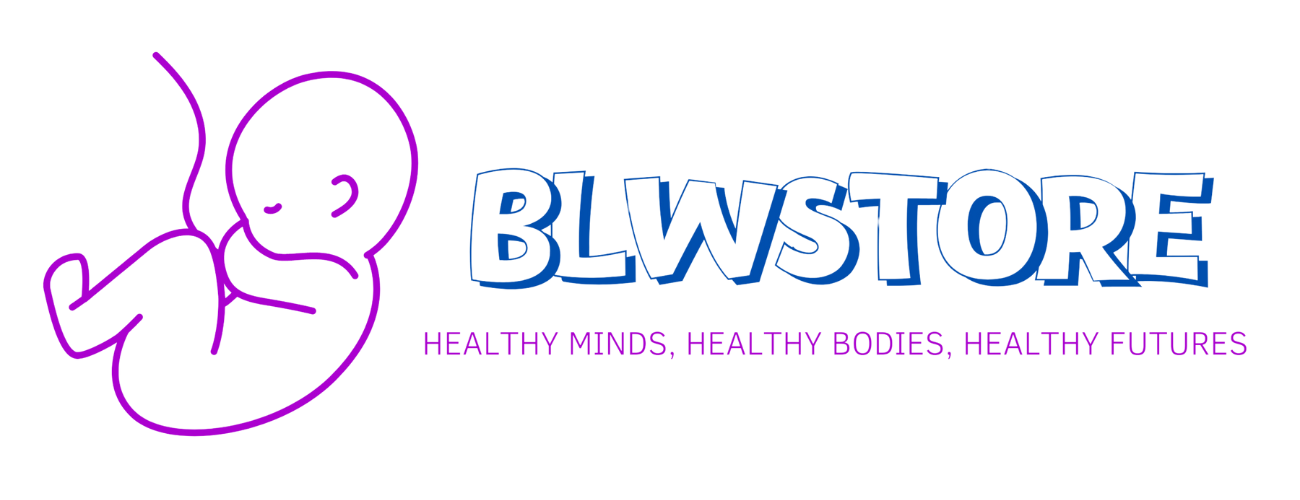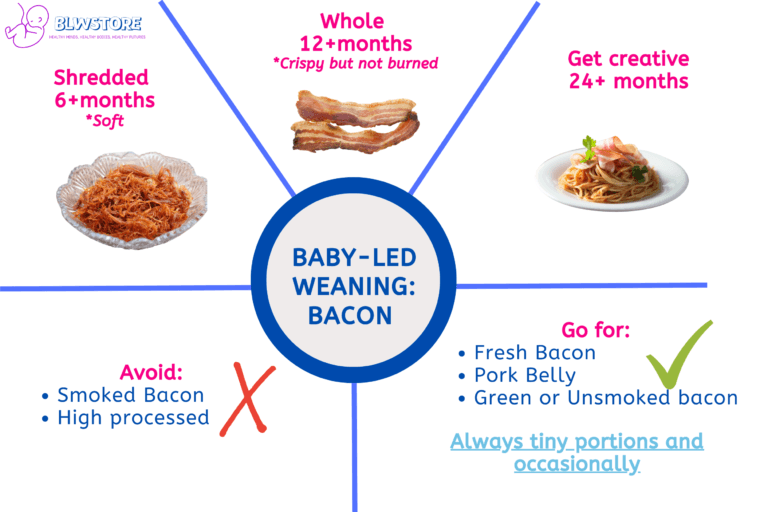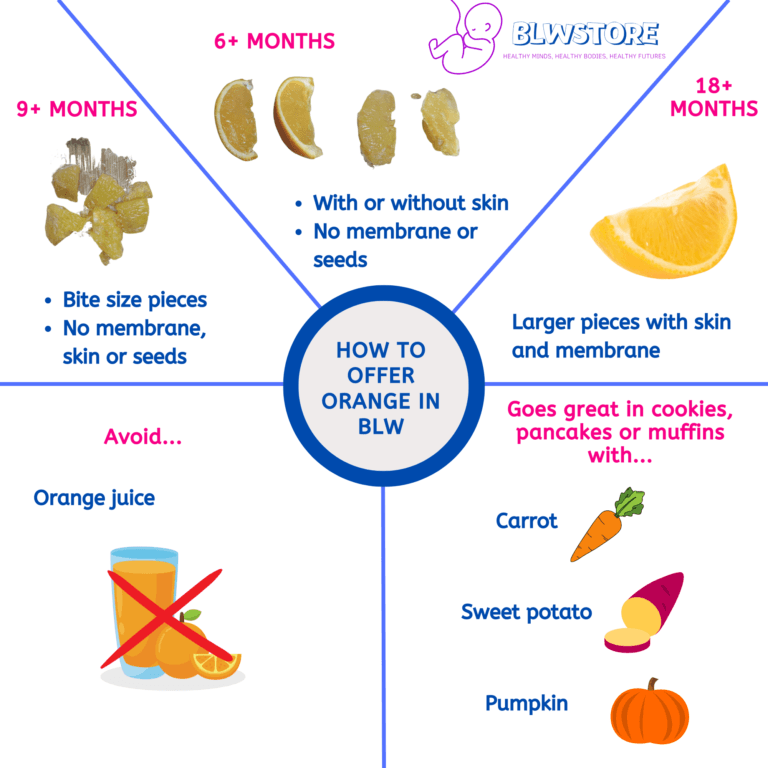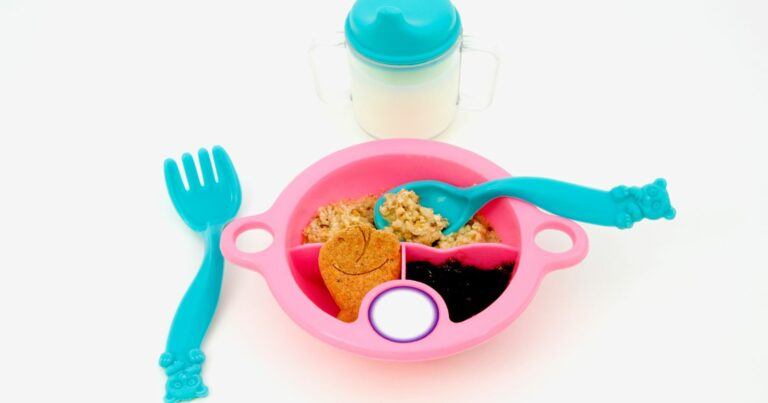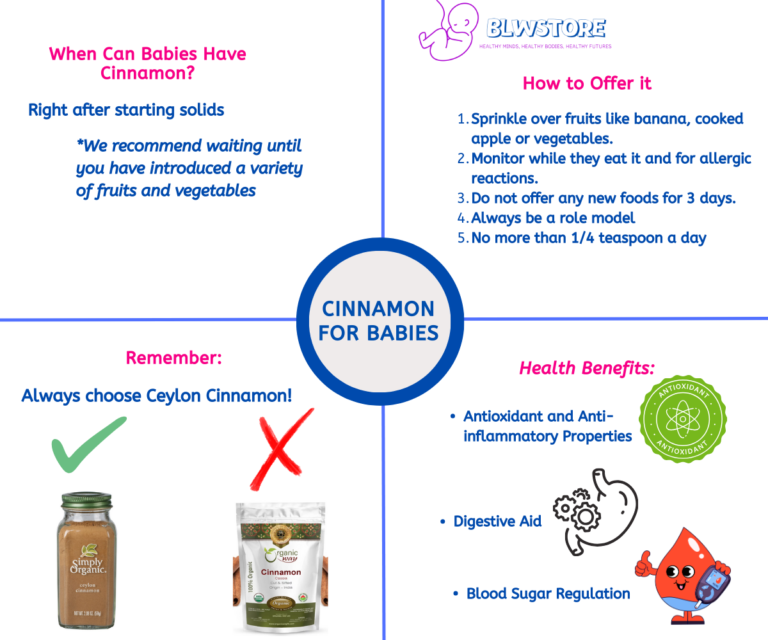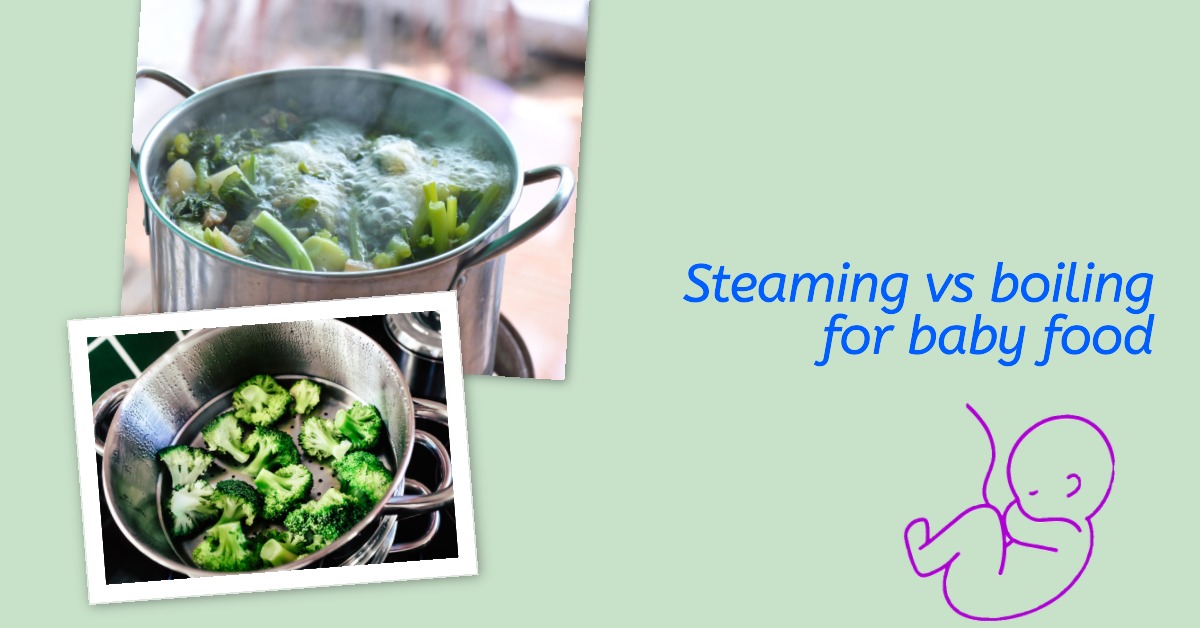
Let food be thy medicine and medicine be thy food.
– Hippocrates
As a new parent, one of your key responsibilities is making sure your baby receives a nutritious, balanced diet. The best source of many essential nutrients for babies, particularly protein, is often found in meats and organ meats. Protein is a vital nutrient for your baby’s growth and development.
However, a baby’s capacity to process protein is limited compared to an adult’s, making the choice of protein sources crucial. This means that the ‘bioavailability’ of the proteins you choose for your baby matters.
In this article, we’ll guide you through the best protein sources for babies, breaking down the benefits and considerations of each.
“Protein doesn’t have to be complicated. By understanding the benefits and limitations of different sources, you can provide your baby with a diet rich in high-quality protein.”
*Related read: Best Carb Sources for Babies | Best Fat Sources for Babies
Key facts you should know Before Reading
Organ meats like liver are rich in protein and other essential nutrients like iron and vitamin B12.
Why Protein is Essential for Your Baby’s Growth
From the moment your baby is born, they embark on a significant journey of learning and discovery. This includes understanding how to fuel their bodies properly; protein plays a pivotal role here.
Proteins are fundamental to our bodies, second only to water in abundance. They play a crucial role in maintaining every cell and tissue, and for your little one, they’re exceptionally important for growth and development.
Composed of amino acids, protein serves as life’s building blocks. These important molecules help construct your baby’s unique cellular structure, supporting every part of growth and development, from their tiny eyelashes to the tips of their toes.
As your baby grows, they need different quantities of protein. It’s a delicate balance as too much protein can also be detrimental. The optimal amount of protein for your baby depends on their weight and age, and it’s important to remember that a baby’s protein requirement can often exceed that of an adult.
How Much Protein Can a Baby Have?
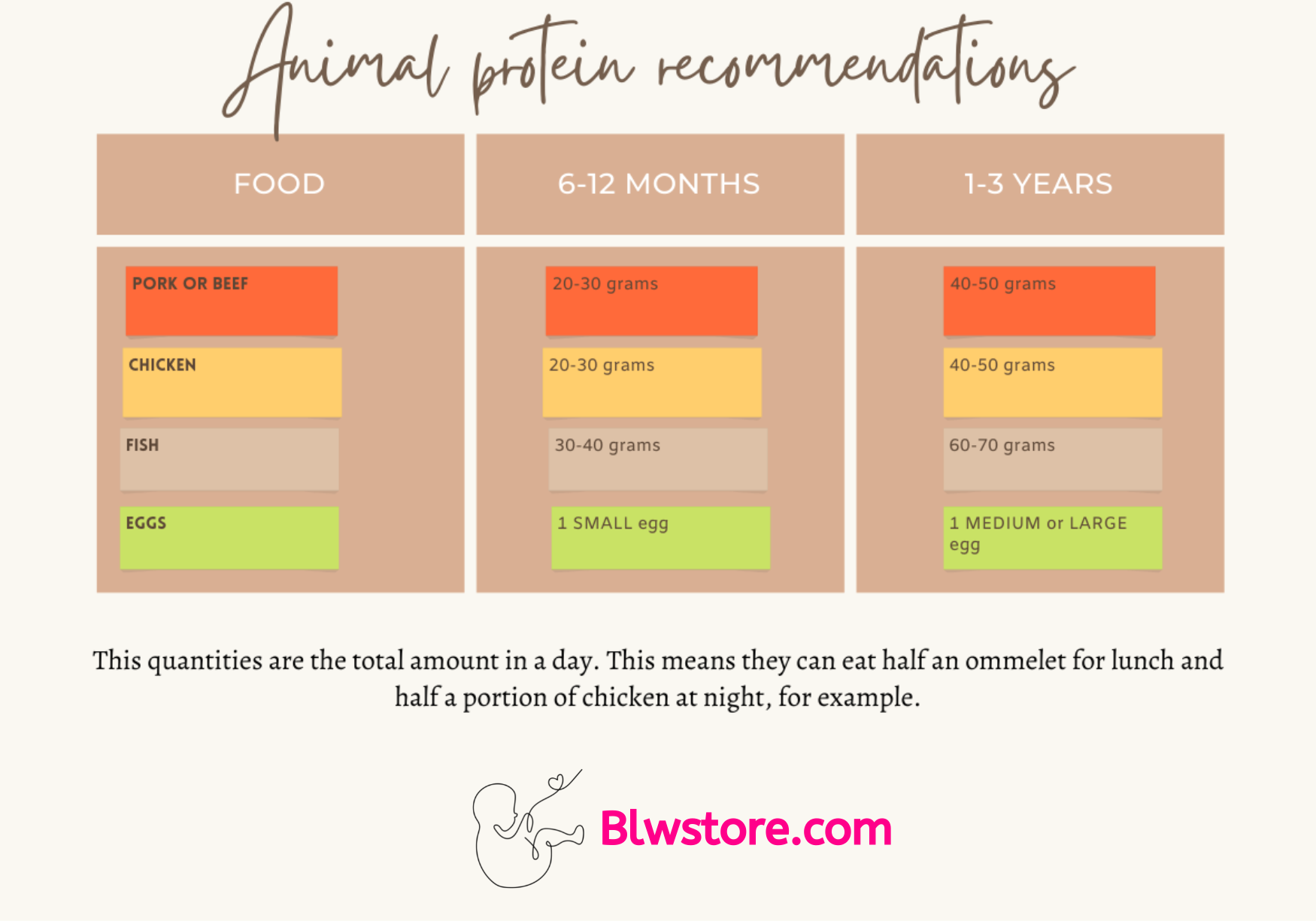
Planning your baby’s protein intake is crucial for their healthy development, but they don’t need as much as you might think.
Why?
Because babies’ bodies are superbly efficient at using protein for growth.
So, what amount of protein is perfect for your little one?
World Health Organization guidelines suggest that babies up to 6 months need about 1.52 grams of protein per kilogram of body weight daily. The good news is, their diet of breast milk or formula naturally meets this requirement.
For babies between 6 to 12 months starting on solid foods, this need slightly decreases to around 1.2 grams per kilogram of body weight each day.
For toddlers aged 1-3 years, the protein requirement drops to about 1.05 grams per kilogram of body weight. This measure continues to fall for children between 4 to 13 years, who need around 0.76 to 0.95 grams per kilogram of body weight.
These numbers won’t turn your child’s diet into a protein fest. The balanced, protein-rich meals you’re probably already serving likely fulfill your baby’s protein needs.
But remember, it’s not only about how much protein your baby ingests, but also the quality of that protein.
Different proteins are processed at different rates in the body. This variation in processing speed is also known as the protein’s ‘bioavailability.’ Offering your baby high-bioavailability protein foods ensures they receive maximum nutritional benefits.
Mainly, these include nutrient-rich, animal-based foods like meats and organ meats. They are among the best bioavailable protein sources for your baby.
What is Bioavailable Protein for Babies?
Bioavailable protein refers to how well your baby’s body can take in and utilize the protein from the food they eat. It’s important to know that not all proteins are created equally, especially regarding your baby’s ability to absorb and use them efficiently.
Why is bioavailability essential? Because the higher the bioavailability score of a protein source, the better your baby can exploit the essential amino acids contained within it. Crucially, these amino acids are the building blocks of proteins in the body, contributing to muscle growth, tissue repair, and immune function, among other things.
Animal-based protein sources, like meats and organs, have higher bioavailability, meaning they are easily absorbed and utilized. They are complete proteins, containing all of the essential amino acids that your baby needs.
Plant-based proteins also provide vital nutrients, they are often incomplete proteins and may need to be served with contrasting food types to create a complete protein source.
Metaphor time!
Imagine the process of protein absorption and utilization as a road trip. The car (protein) needs to reach its destination (say, your baby’s muscles) in a timely and efficient manner, and the condition of the road (bioavailability) will greatly impact how well the car can achieve its goal. A smoother highway (higher bioavailability) means the car can reach the destination more efficiently, while a rocky, mountainous path (lower bioavailability) slows it down.
So, which are the most bioavailable protein sources to consider for your baby? Harkening back to our metaphor, what equates to the superhighways and highways for protein absorption and utilization in babies?
Let’s explore this in our next section!
What are the best protein sources for babies?
Knowing what the best protein sources are is an important part of fostering your baby’s growth and health. The higher the bioavailability and more nutrient-rich food is, the better.
Here’s a table with different protein sources an their bio-availability index and prominent minerals and vitamins.
| Protein Source | Bio-Availability Index | Prominent Minerals/Vitamins |
|---|---|---|
| Whey Concentrate | 104 | BCAAs, Immunoglobulins |
| Whey Protein Isolate Blends | 100 | Branched-Chain Amino Acids (BCAAs), Calcium |
| Whole Egg | 100 | Choline, Vitamin B12, Selenium |
| Cow’s Milk | 91 | Calcium, Vitamin D, B Vitamins |
| Organ Meats | 90 | Vitamin B12, Iron, Zinc |
| Egg White | 88 | Protein, Riboflavin, Selenium |
| Fish | 83 | Protein, Various Vitamins and Minerals |
| Meats (Beef, Pig, Lamb) | 80 | Iron, Zinc, B Vitamins |
| Dairy Products (Milk, Yogurt, Cheese) | 80 | Calcium, Vitamin D, B Vitamins |
| Fish (Salmon, Cod) | 80 | Omega-3 Fatty Acids, Vitamin D |
| Beef | 80 | Protein, Various Vitamins and Minerals |
| Chicken | 79 | Protein, Various Vitamins and Minerals |
| Casein | 77 | Calcium, Phosphorus |
| Poultry | 75 | Selenium, B Vitamins |
| Rice | 74 | Manganese, Magnesium |
| Plant-based Proteins (Chickpeas, Peanuts, Peas) | 60 | Fiber, Iron, Zinc |
| Soy | 59 | Iron, Calcium, Phytoestrogens |
| Wheat | 54 | Fiber, B Vitamins |
| Beans | 49 | Fiber, Iron, Potassium |
| Peanuts | 43 | Magnesium, Vitamin E, Biotin |
1. Organ Meats
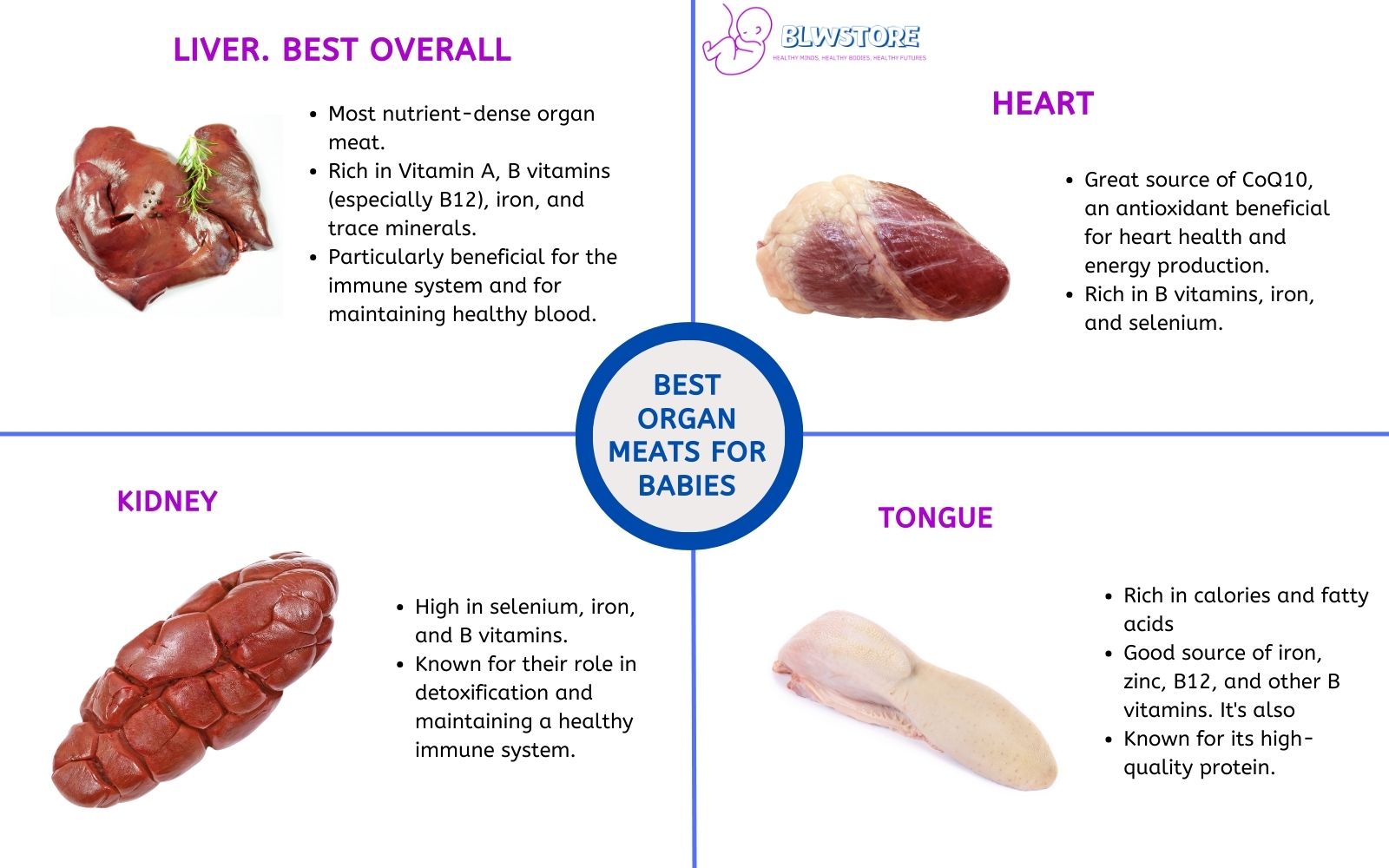
Organ meats are often overlooked, but they are chock-full of nutrients and are an excellent source of high-quality protein for your little one. We’re talking about organs like the liver, heart, and kidneys from animals such as beef, lamb, or chicken. These types of meats pack a powerful nutritional punch.
Liver, for example, is rich in protein, Vitamin A, and iron, which are essential for your baby’s growth and development. Heart, besides high-quality protein, offers CoQ10, an important element for heart health. The kidneys are a great source of Vitamin B12 and provide good quality protein.
How can you include organ meats in your baby’s diet?
Well, organ meats can be finely chopped or ground and added to different dishes, such as purees or casseroles. Just remember to cook them thoroughly to kill any harmful bacteria and make them safer for your baby to consume.
While organs are one of the best foods thanks to their bioavailability and nutrients, babies should consume them in small amounts because of their high vitamin A content. Here’s a table for reference:
| Age | Safe Liver Intake Amount |
|---|---|
| 6 – 9 months | 1 – 2 teaspoons twice a week |
| 9 – 12 months | 1 tablespoon twice a week |
| 12 – 24 months | 1.5 tablespoons twice a week |
| 2+ years | 2 tablespoons twice a week |
Also, please note that it’s essential to ensure the organ meats are sourced from healthy, well-raised animals. Preferably, choose organic to avoid any potential exposure to antibiotics, hormones, or other chemicals often involved in conventional farming practices.
2. Meats
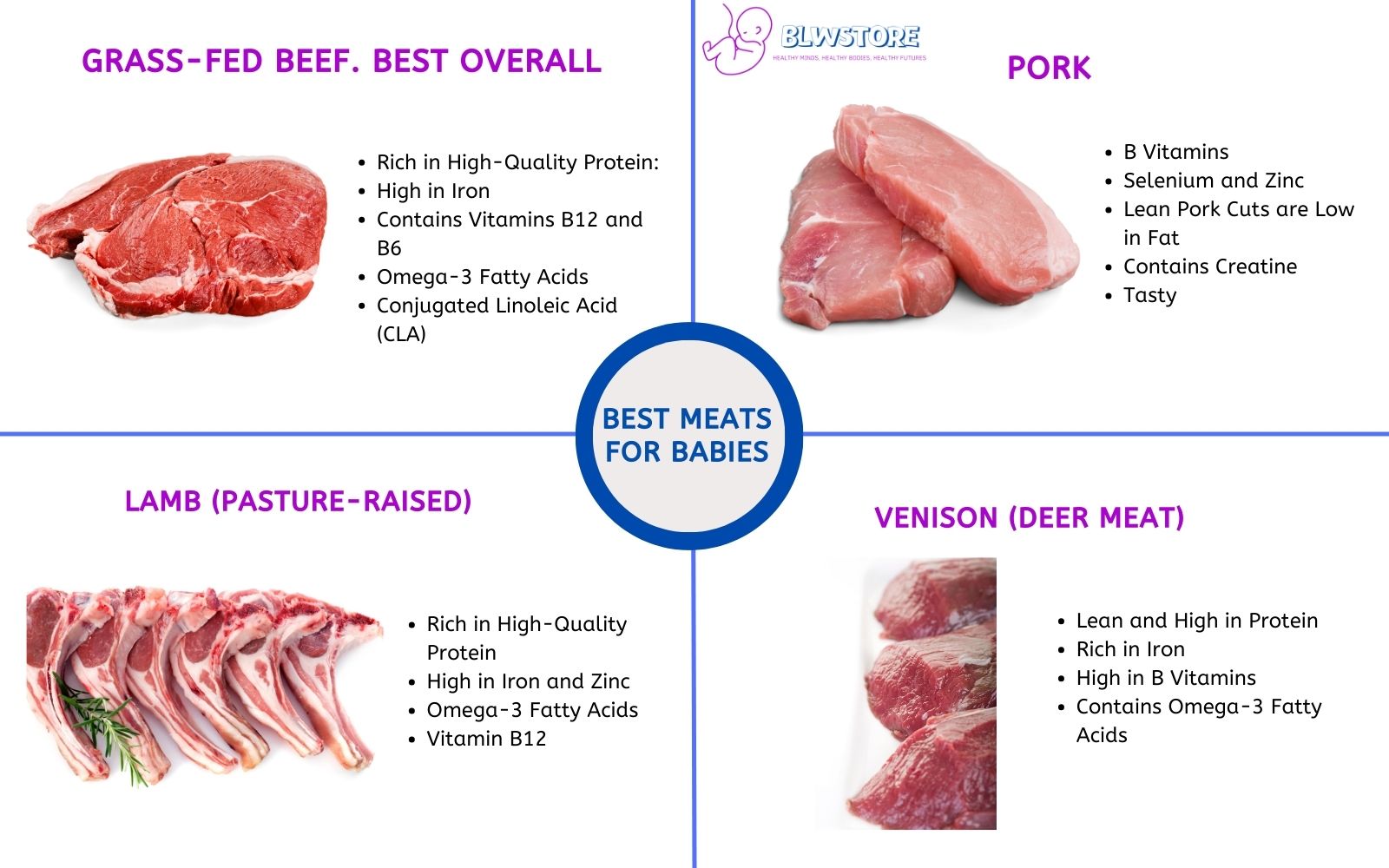
Who doesn’t savor a well-cooked, flavorful piece of meat, right? Well, your little one may just be on the verge of discovering this culinary delight, too. Incorporating tender, well-cooked meats into your baby’s diet is not just a flavor adventure, but also a crucial step towards ensuring they receive the protein they require.
- Beef: Did you know that beef is packed with not only protein, but also iron, zinc, and B-vitamins? Introducing your baby to lean, well-cooked beef can be a fantastic way to supplement their diet naturally. The key here is to go ‘lean’ and ‘soft,’ ensuring ease of digestion.
- Pork: Pork might not be the first type of meat you think about when considering your baby’s diet, but did you know it’s also rich in protein, as well as essential vitamins and minerals? Like beef, the trick is to ensure it’s well cooked and tender.
- Lamb: Slightly gamey, yet succulent, lamb can be a wonderful addition to a baby’s diet. Rich in both protein and essential vitamins, it can be a delicious way for your child to meet their protein needs. As with all meats, make sure it’s well-cooked and easy to chew.
How should you serve these meats to your baby?
Puree or finely shred the cooked meat. They may not have the teeth to handle chunks of meat yet. You can check our article about meat and baby-led weaning for more information.
3. Dairy Products
Milk is full of essential nutrients that not only assist in your baby’s growth, but also help to maintain overall health. But hold on, are we ready to give them any dairy products now? Well, not exactly.
When we say dairy products, we commonly mean cow’s milk, cheese, and yogurt. But, things are a bit different when we talk about dairy for babies.
Infants under the age of 1 should not be given regular cow’s milk as their digestive system is not suitably mature to handle it, leading to potential nutritional imbalance.
On the other hand, cheese (made with pasteurized milk and without added salt) and yogurt (whole and natural) can be introduced as early as 6 months, providing your baby with an excellent source of protein.
Yogurt, in particular, is packed with live cultures that aid digestion. Whole milk yogurt is highly recommended. While it might seem counterintuitive to give your baby ‘whole fat’ products, at this age, babies need fat for brain development.
Cheese is also a good source of protein. Babies generally love the texture of cheese, making it a fun addition to meals. Stick with mild cheeses like cheddar or mozzarella, and ensure the cheese is cut appropriately. Learn more here.
Tip: Remember to introduce new food, including dairy products, one at a time. If your baby shows any signs of intolerance such as a rash, gassiness, or changes in stool, stop the new food and consult your pediatrician.
4. Fish
Fish is another excellent protein source that’s not only packed with essential nutrients, but also boasts conveniently soft textures for your baby. Would you believe us if we said that certain types of fish could provide your little one with nearly half of the daily protein requirement in a single meal?
Consider fish varieties such as salmon, cod, and tilapia. These are all rich in protein and contains omega 3 fatty acids, which are fantastic for brain development. Salmon, in particular, could be a super food for your baby. But hang on! You’d like to remember that you should ensure any fish you serve is thoroughly cooked and free from bones, right?
So, how can you introduce fish to your baby’s diet? It can be as simple as poaching or steaming a fillet and mashing it into their mixed vegetable puree. When you feel your baby is ready for more texture, you can flake the fish into small, manageable pieces.
Serving fish at least twice a week is an effective way to ensure your baby gets a good protein balance.
But you’re probably thinking, “Is there anything I should watch out for?”
Yes, there is.
Beware of high mercury fish such as swordfish, shark, king mackerel, and tuna. These are not suitable for babies due to their high mercury content.
5. Poultry
Just like meats, poultry provides an excellent source of highly bioavailable protein for your baby. It’s soft, easy to cook, and often has a mild taste that babies seem to prefer. When introducing your baby to poultry, start with chicken or turkey as they are the least allergenic.
But how can you introduce poultry to your little one’s diet?
First, ensure the chicken or turkey is cooked thoroughly, then puree it to a suitable consistency for your baby or offer it in a BLW-friendly way. Choose skinless and boneless options to lower the risk of choking.
- Chicken: Chicken is an incredibly versatile protein source, and one of the easiest for babies to eat. It’s also high in many essential nutrients like Vitamin B6 and niacin.
- Turkey: While often reserved for Thanksgiving, turkey offers a fantastic source of protein year-round. Ground turkey can easily be incorporated into a wide range of pureed recipes for your baby.
6. Plant-Based Protein for Babies: What You Need to Know
While meats and organ meats are excellent sources of protein, not all parents may feel comfortable introducing these foods to their little ones right away. So, where else can your baby derive protein from? Let’s turn our attention to plant-based proteins.
Plant-based protein sources and animal-based counterparts can also play a notable role in your child’s diet. Yet, there are a few considerations to keep in mind. First, plant-based proteins are incomplete, meaning they lack one or more essential amino acids. Yet, this doesn’t mean they’re off the table.
By offering a variety of plant-based foods, you can ensure your baby receives a full spectrum of these critical nutrients.
Legumes such as chickpeas, lentils, and black beans are great choices. These foods are rich in protein and contain valuable vitamins and minerals. Equally important, they’re high in dietary fiber, which aids digestion.
Have you considered quinoa? Quinoa is a unique plant-based protein because it’s a complete protein, containing all essential amino acids. Its soft texture and mild flavor make it an excellent choice to incorporate into your baby’s diet.
Nut butters, from almond to cashew to peanut, can also provide a good dose of protein. Nevertheless, use these sparingly due to their high fat content, and always ensure the product you choose is free from added sugars and salts.
Though your baby must get a good balance of protein, it’s equally important to introduce a variety of nutrients into their diet. A mixed diet of fruits, vegetables, whole grains, lean meats, and plant-based proteins will cater to their nutritional needs optimally.
At the end of the day, diversity is key when planning your baby’s meals.
Common Myths About Protein Intake in Babies: Busted
We think it’s high time to debunk some of the most common myths about protein for babies.
- Myth 1: ‘Infants shouldn’t eat meat.’ or ‘meat is unhealthy’
- Myth 2: ‘Babies should only be fed with plant-based proteins.’ or ‘plant-based protein is better than animal-based’
- Myth 3: ‘All proteins are created equal.’
Clarity about these misconceptions can empower you to provide the best nutrition for your baby. Remember – quality often matters more than quantity when it comes to your child’s diet. So, focus on incorporating the right types of proteins and trust that you are doing a great job!
Protein for Babies FAQ
What are the risk of giving babies too much protein?
Kidney strain: Excess protein puts a lot of pressure on your baby’s kidneys. This strain might contribute to kidney damage over time, paving the way for problems later in life.
Nutrient imbalance: If your baby’s diet is too heavy on protein, it might lack balance. They might be missing out on other vital nutrients, like fiber and healthy fats. Sticking to recommended protein intakes helps ensure a varied and balanced diet.
What are the signs that my baby is not getting enough protein?
- Slowed or Stunted Growth: One of the first signs you might notice is a slowing in the rate of your baby’s growth, compared to their peers or established milestones.
- Frequent Illness: Frequent bouts of illnesses like colds or infections might be an indication that your baby isn’t receiving enough protein to support a healthy immune system.
- Lethargy: Inadequate protein can lead to constant fatigue or lethargy. Your baby might seem less energetic than usual or show limited interest in play.
- Poor Muscle Tone: Your baby may appear weak or flabby, as opposed to well-muscled, indicating a possible lack of protein, which plays a vital role in muscle development and maintenance.
- Increased Appetite: Interestingly, babies who aren’t getting enough protein may show signs of an increased appetite, especially for foods that are rich in simple carbohydrates, as the body tries to compensate for the lack of energy from protein.
- Changes in Skin and Hair: Skin may appear flaky or seem unhealthy. Hair might also appear thin and brittle, signs of poor nutritional health often linked to protein deficiency.
If you notice one or more of these signs, we strongly encourage you to consult a healthcare professional for confirmation and advice on remedying the situation. Each baby is unique, and the signs of protein deficiency might manifest differently in different children.
How do I ensure my baby gets enough protein if we follow a vegetarian diet?
Your baby can get enough protein while following a vegetarian diet but it requires a little bit more planning to ensure that your baby gets all the essential amino acids required for proper growth and development. Here’s how:
- Variety is Key: Offer a variety of plant-based protein sources to make sure your baby is getting a complete profile of essential amino acids. Foods such as lentils, chickpeas, quinoa, and edamame are excellent choices. Can you find these in your local supermarket?
- Powdered Peanut Butter: A great protein source for babies, especially those at risk for allergies, is powdered peanut butter. It can be easily added to purees and oatmeal. Have you tried this?
- Cheese, yogurt and eggs: offer more of these foods if meat and organs are off the table.
Always remember to consult with your pediatrician or a registered dietitian to ensure that your baby’s nutritional needs are being met. We know that it can be a bit challenging, especially in the early stages, but with this information, you’re on the right track!
How can I increase the bioavailability of proteins in my baby’s meals?
Increasing the bioavailability of proteins in your baby’s food is a matter of incorporating specific strategies into your meal preparation. In fact, it can be as simple as diversifying their diet or preparing foods in certain ways Here’s how you can do it:
- Blend Foods: When foods are finely chopped, minced, or blended, it can be easier for babies to digest and absorb the nutrients more efficiently. This can be particularly useful when introducing meats into your baby’s diet, as these proteins are more complex.
- Prioritize Quality: Choose high-quality, organic, and if possible, grass-fed meats and dairy. The nutrient composition can be richer in these foods leading to better bioavailability.
- Cooking Methods: Gentle cooking methods like steaming, boiling, or slow-cooking can help preserve the proteins’ nutritional quality.
- Mix Protein Sources: Combining different protein sources such as meat with a small portion of dairy can also increase protein bioavailability. However, always remember the need for moderation in portion sizes not to exceed the advised protein intake for babies. Another great way to enhance protein bioavailability is to combine proteins with other key nutrients in your baby’s meals. For instance, Vitamin C boosts the absorption of iron in the body, a mineral that’s often coupled with protein-rich foods. So, pairing proteins with foods rich in Vitamin C like oranges, strawberries, or bell peppers can be beneficial.
Note: Always keep in mind, introducing new foods to your baby should be done one at a time, over a few days, to monitor for any allergic reactions. Remember, the comfort and safety of your little one always come first.
In the end, your goal is to provide a balanced diet to your baby. If you have any doubts, we strongly recommend that you reach out to a healthcare professional, such as a pediatrician or a dietitian, who can provide guidance that is specifically tailored to your baby’s needs.
We’re Maria and Alberto, a married couple and educators who are nutrition enthusiasts. Even before we had kids, we were already crazy about nutrition.
We’d read scientific articles, watch videos from nutritionists, and spend hours listening to nutrition podcasts.
Today, we continue doing this, but in a different way, as we’ve learned to sift through the noise and trends. Nutrition, like any other field of knowledge, the more you read and learn, the more you develop a comprehensive understanding of reality, and that’s what has happened to us.
Before having our first child, we focused on learning everything we could about child nutrition, using the same techniques we had already employed, backed by our extensive knowledge in nutrition.
Our mission is to help other parents with their children’s nutrition, to help them become the best versions of themselves.
If we are what we eat and drink, which is absolutely true, let’s do it right!
